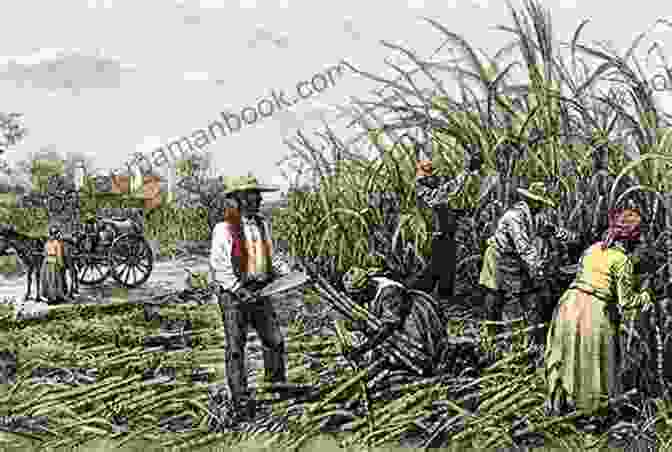Nestled in the azure waters of the Caribbean Sea, Haiti bears the scars of a tumultuous past. Among the most enduring symbols of this history are the remnants of sugar plantations, once sprawling enterprises that fueled the wealth of colonial empires at the expense of countless enslaved lives. The story of Haiti's sugar plantations is a chilling reminder of the horrors of the transatlantic slave trade and the lasting impact of colonial exploitation.
The Origins of Sugar Plantations
Sugarcane cultivation was introduced to Haiti by Christopher Columbus in the 16th century. However, it was not until the arrival of the French in the 17th century that sugar plantations became a dominant feature of the island's economy. Driven by the insatiable European demand for sugar, French colonizers established vast plantations, often seizing land from indigenous Taino communities.
5 out of 5
| Language | : | English |
| File size | : | 1696 KB |
| Text-to-Speech | : | Enabled |
| Screen Reader | : | Supported |
| Enhanced typesetting | : | Enabled |
| Word Wise | : | Enabled |
| Print length | : | 12 pages |
| Lending | : | Enabled |

Systemic Enslavement and Brutality
The sugar industry in Haiti was built on the backs of enslaved Africans. Millions of Africans were forcibly transported to the island and subjected to unimaginable horrors. They toiled under the scorching Caribbean sun, forced to work long hours in hazardous conditions. Women and children were not spared the brutality; they too endured the same backbreaking labor and faced sexual exploitation.
The death rate among enslaved Africans was staggering. Disease, malnutrition, and violence took a heavy toll, leading to a constant need for new slaves. The French implemented a system known as the "Code Noir" (Black Code),which legalized harsh punishments for enslaved people, further perpetuating the cycle of violence and dehumanization.
The Haitian Revolution and Abolition
In 1791, enslaved Haitians rose up in revolt, sparking the Haitian Revolution. Led by Toussaint Louverture, Jean-Jacques Dessalines, and other brave leaders, the revolutionists fought fiercely for their freedom. After years of bloody conflict, Haiti declared independence in 1804, becoming the first Black-led republic in the world.

The Haitian Revolution not only brought about the abolition of slavery but also ushered in a new era of political and social change. Haitians established a government based on principles of equality and self-determination, though the country faced severe economic and diplomatic challenges in its early years.
Legacy and Impact
The legacy of Haiti's sugar plantations continues to reverberate through Haitian society. The exploitation and brutality inflicted during this period left deep scars on the nation's psyche. Poverty, social inequality, and environmental degradation are among the ongoing challenges that Haiti confronts today.

However, the legacy of Haiti's sugar plantations is not merely one of pain and suffering. It is also a testament to the resilience and indomitable spirit of the Haitian people. Despite the horrors they have endured, Haitians have persevered, building a nation rich in culture, traditions, and a deep-rooted desire for justice and progress.
The history of Haiti's sugar plantations serves as a somber reminder of the horrors of slavery and the devastating impact of colonial exploitation. It is a story of exploitation, resilience, and the enduring struggle for freedom and dignity. As Haiti continues to navigate the challenges of its past, the lessons learned from this dark chapter should guide the nation towards a more just and equitable future.

















































































































